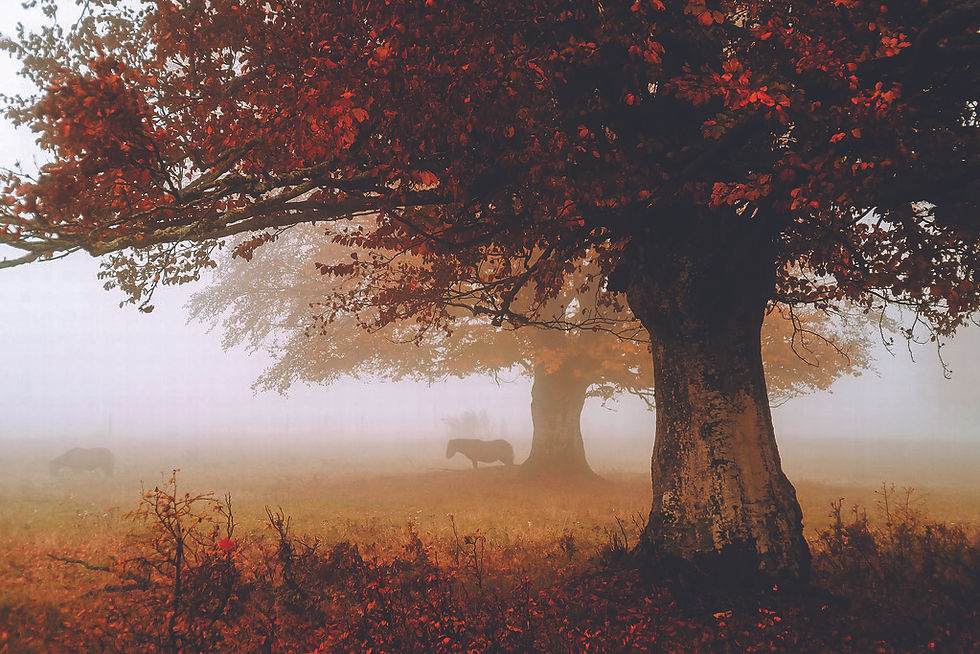Behind a bottle of milk / Iza flaše mleka
- Анђела Петровски
- Mar 7, 2022
- 4 min read
Agriculture is a very demanding job which requires absolute commitment. The Coronavirus, that the whole world is facing right now, has even made the already difficult job more complicated. The Mladenov family from Dimitrovgrad has been engaged in agriculture for more than 20 years. There are eight cows, fifteen sheep, and a dozen hens on their agricultural holding (farm).
Because of the work, Aleksandar is forced to sleep in the hayloft, which is located almost a kilometer from his house. Every day he wakes up at 5 o’clock in the morning to milk the cows, feed the animals, and do a lot of other things. His wife and the twin daughters Jelena and Julia join him at about 7 o’clock in the morning to help him with all the work.
Emilija describes this as a part of her job on the farm:
‘‘Our daughters and I sleep in the house and come here right after breakfast. I pour the milk into bottles, put it into a cart, and I go straight to town, together with the daughters, to sell the milk. We are not employed, so we have to keep animals in order to survive. They are our only source of income. The virus has made our work more difficult because people are afraid, and they have been buying less milk lately. The situation is very difficult, but we manage to survive somehow”.
The change in the teaching methods caused by emergency measures has also affected Emilija’s everyday activities.
“School is closed because of the virus, and our children attend online classes. They are in Year 2, and I have to follow the lessons with them. I help them with their homework, and when we finish it, we go back to the hayloft. They have to be by my side all the time, which complicates work even more. I have to look after them. Sometimes I leave them at the neighbors’ house, but they cannot look after them constantly, because they have their own lives and problems. I finish all the work and we go back home before the beginning of the curfew.”
The love they have for their daughters are the driving force in the life of Emilija and Aleksandar:
“My husband and I give our best to provide our children with all the things they need. They are our life, and we have been struggling for them all of our lives. I was nearly sixteen when I got married, and we have been living together for 20 years. I had been trying to get pregnant for twelve years but without success. I had two in vitro interventions – the first failed, and after the second, I gave birth to two girls. I gave birth ahead of time, at the sixth month of pregnancy. Due to some complications, both our girls had to be kept in incubators for five months. When they grew slightly, they were not in the incubator anymore, and I could finally see my daughters. A couple of months after they had been released from the hospital, they got bronchitis and pneumonia. They barely survived; but they are fighters, like me, too. I am really scared of the Coronavirus, and I make sure they do not go out so often, but on the other hand, because of all the work, I cannot leave them alone at home. We hope that all of this will finish as soon as possible. It is important that we are alive and well. Not all of us can be presidents; someone has to keep sheep as well. Says Emilija and continues with the work on the hayloft.”
Photo and Text by Stefan Pavić
Poljoprivreda je veoma zahtevna delatnost koja traži potpunu posvećenost. Korona virus sa kojim se trenutno suočava ceo svet samo je otežao već dovoljno težak posao. Aleksandar i Emilija Mladenovi iz Dimitrovgrada bave se poljoprivredom više od dve decenije. Na njihovom gazdinstvu nalazi se osam krava, petnaest ovaca i desetak kokošaka.
Zbog posla Aleksandar je primoran da spava u pojati koja je se nalazi na oko kilometar od njegove kuće, iznad Dimitrovgrada. Ustaje u 5 da bi pomuzao krave, nahranio životinje i obavio još puno toga. Emilija i ćerke bliznakinje Jelena I Julija pridružuju mu se oko 7 da bi mu pomogle oko poslova.
Emilija ovako opisuje deo njenog posla na gazdinstvu:
“Ja i ćerke spavamo u kući i dolazimo ovde odmah posle doručka. Sipam pomuženo mleko u flaše, stavljam u kolica i idem zajedno sa ćerkama u grad da ga prodam. Nema posla, čuvamo stoku da bi preživeli, ona nam je glavni izvor prihoda. Virus nam još više otežava posao zato što su ljudi uplašeni i manje kupuju mleko u poslednje vreme. Situacija je veoma teška, ali nekako uspevamo da preživimo.”
Promena u načinu nastave izazvana vanrednim merama, odrazila se i na obim Emilijinih svakodnevnih obaveza:
“Škole su zatvorene zbog virusa i deca imaju onlajn nastavu. Idu u drugi razred i ja moram da gledam nastavu zajedno sa njima. Pomažem im oko domaćeg zadatka i po završetku vraćamo se na pojatu. Moraju stalno da budu pored mene, što dodatno otežava posao zato što moram da ih pazim. Nekad ih ostavim kod komšija, ali oni ne mogu stalno da ih čuvaju zato što i oni imaju svoje živote i probleme. Završavam sve poslove i vraćamo se kući pre početka policijskog časa”, dodaje Emilija.
Ljubav prema ćerkama je osnovna pokretačka snaga u životu Emilije i Aleksandra:
“Ja i suprug se trudimo da obezbedimo ono što je nephodno našoj deci, ona su naš život i za to smo se borili. Udala sam se sa nepunih šesnaest godina i već dvadeset godina živimo zajedno. Dvanaest godina smo pokušavali da imamo decu, ali bezuspešno. Imala sam dve vantelesne oplodnje – prva je bila bezuspešna, a na drugoj sam dobila dve ćerke. Porodila sam se pre vremena, u 6. mesecu. Zbog komplikacija, obe su morale da budu u inkubatoru pet meseci. Kada su malo porasle, pustili su ih i napokon sam mogla da vidim svoje ćerke. Nekoliko meseci po izlasku iz bolnice dobile su bronhitis i upalu pluća i jedva su ostale žive. I one su borci kao i ja… veoma sam uplašena zbog korona virusa i trudim se da ne izlaze toliko često napolju, ali, s druge strane,zbog posla ne smem da ih ostavim same kod kuće. Nadamo se da će ovo što pre proći, bitno nam je da smo živi i zdravi. Ne možemo svi da budemo predsednici, mora neko da čuva ovce”, kaže Emilija i nastavlja poslove koji je čekaju na pojati.
Fotografije i tekst – Stefan Pavić























Comments